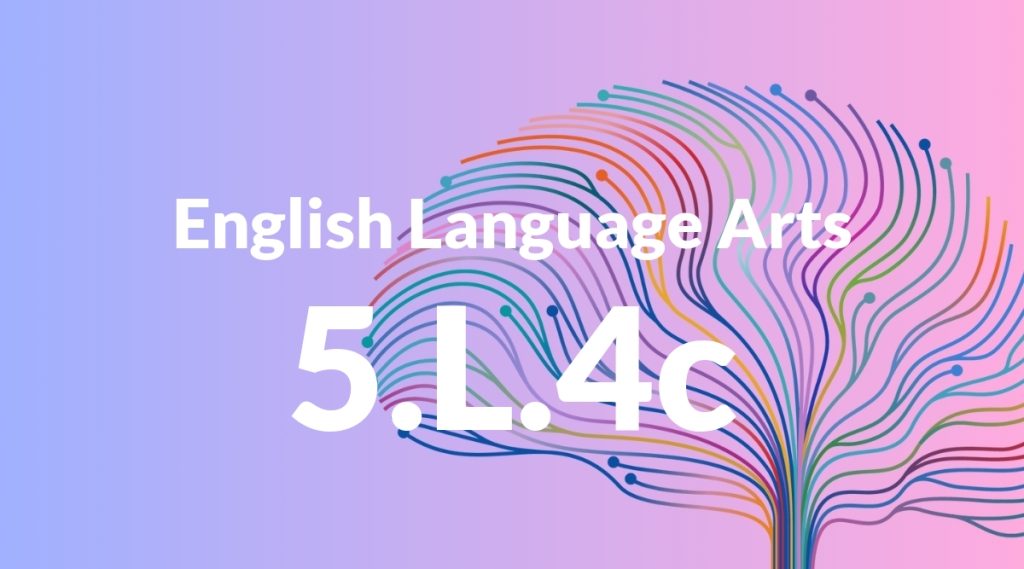Standard: 5.L.4c – Consult reference materials (e.g., dictionaries, glossaries, thesauruses), both print and digital, to find the pronunciation and determine or clarify the precise meaning of key words and phrases.
Grade level: Grade 5
Subject: English Language Arts
Domain: Language
Teacher Overview
This standard emphasizes the importance of using reference materials to enhance vocabulary and comprehension skills. By mastering this standard, students will be better equipped to understand and use new words accurately, which is crucial for their overall language development. Students should already know how to use a basic dictionary and have some experience with digital tools for looking up information.
After mastering this standard, students will be able to independently verify the meaning and pronunciation of new vocabulary, enhancing their reading comprehension and writing skills.
Common Misconception 1
A common misconception is that all dictionaries and thesauruses provide the same information. This is incorrect because different reference materials can offer varied definitions, examples, and usage contexts.
Intervention 1
To address this misconception, provide students with different types of dictionaries and thesauruses, both print and digital, and guide them in comparing the information provided by each.
Common Misconception 2
Another common misconception is that digital reference materials are less reliable than print versions. This is not necessarily true, as many digital resources are updated more frequently and can offer additional features like audio pronunciations.
Intervention 2
To remediate this misconception, teach students how to evaluate the credibility of digital resources and compare them with print versions to understand their reliability.
Prerequisite Knowledge
Students should be familiar with basic dictionary usage, including alphabetical order and understanding word definitions. They should also have a basic understanding of how to use digital tools for research.
Subsequent Knowledge
Students will develop the ability to independently verify the meaning and pronunciation of new vocabulary, enhancing their reading comprehension and writing skills. They will also become more adept at using a variety of reference materials for different subjects.
Instructional Activities
- Dictionary scavenger hunt
- Thesaurus synonym challenge
- Digital glossary exploration
- Pronunciation practice using online tools
- Vocabulary word journal




